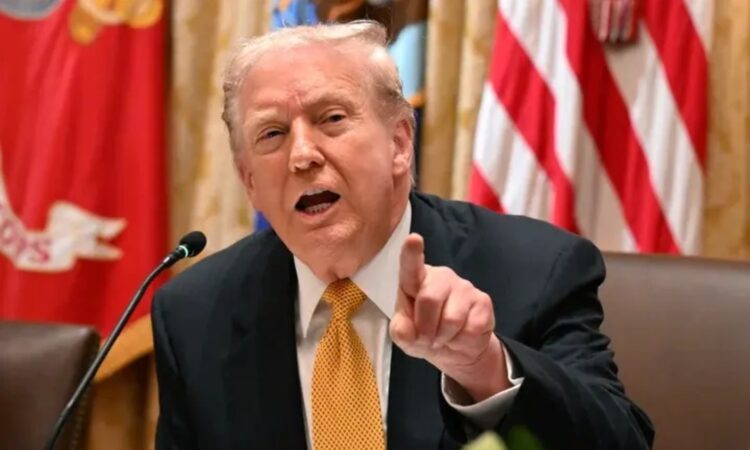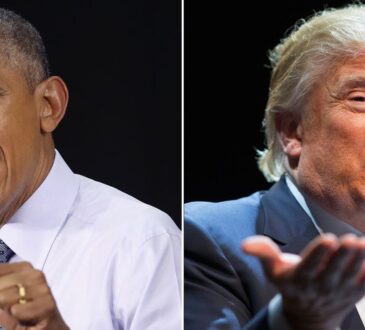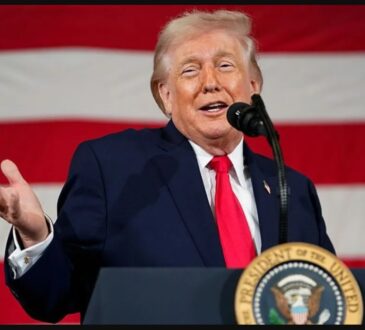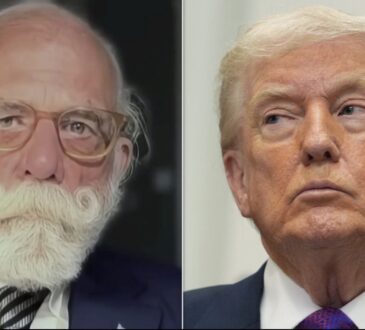
Donald Trump keeps repeating that prices in America are “way down,” especially when he talks about groceries, gas, and the economy in general. But for most Americans, that claim doesn’t match what they see when they go shopping or pay their bills. Food prices have continued to rise, and people feel the difference every week when they visit the grocery store. Government data even shows that food inflation under Trump has nearly doubled compared to Joe Biden’s last year in office.
Since Trump started his new trade war in early April, the cost of groceries has gone up by about 3.1%, according to numbers from the Bureau of Labor Statistics. During Biden’s final year, that rate was only 1.8%. These numbers clearly show that prices are rising faster now. The main reason for this increase is Trump’s tariffs — taxes that American importers have to pay when they bring goods into the country. Even though Trump often claims that foreign countries pay these tariffs, the truth is that the cost is passed on to American businesses and consumers, who end up paying more for products.
Trump’s tariffs have affected goods from almost every country, including nations that have long been considered close U.S. trading partners. Items that many people buy regularly, such as coffee, bananas, sugar, and seafood, have seen some of the sharpest price jumps. Tariffs make it more expensive for companies to import these goods, and that extra cost gets added to the final price that shoppers see on store shelves.
While Trump has made many questionable claims during his presidency, his comments about grocery prices are hitting a nerve because this is something Americans personally experience. People might not fully understand how tariffs or foreign trade work, but everyone understands the pain of seeing their grocery bill go up week after week. Polls show that more than 80% of Americans feel stressed about the cost of groceries, and about half say it’s a major source of financial pressure. Some local politicians, like New York City’s incoming mayor Zohran Mamdani, have even built their campaigns around the issue of affordability, arguing that everyday costs are squeezing working families.
Economists have been openly critical of Trump’s false claims about prices. Justin Wolfers, an economics professor at the University of Michigan, said that everything Trump has said about prices being lower is false. He suggested that Trump doesn’t actually care about the real cost of living for Americans and is more focused on defending his image and his policies.
Trump appears to be very sensitive to criticism about the economy, especially after Republicans performed poorly in recent elections. Many voters told pollsters that they think the economy is struggling and that their expenses are rising faster than their incomes. When confronted with this reality, Trump often responds with anger, accusing the media of lying and calling Democrats “con men and women.” At a dinner with Central Asian leaders, he went on a long rant, insisting that energy and grocery prices are lower because of his leadership and claiming that the press refuses to report the truth.
Reporters later asked Trump about tariffs, pointing out that Chief Justice John Roberts recently stated that tariffs are taxes paid by Americans. Instead of answering directly, Trump launched into a long and confusing explanation about trade, foreign policy, and national security. He said that other countries had been “ripping off” the United States for years and that tariffs were a way to fight back. He also claimed that these tariffs were bringing in “hundreds of trillions of dollars” — a number that doesn’t make sense, since the entire U.S. economy produces only around $30 trillion a year.
Trump argued that tariffs strengthen America’s economy and protect national security, even suggesting that they prevent wars by forcing other countries to respect the U.S. However, most economists strongly disagree with this reasoning. They point out that tariffs make imported goods more expensive, reduce consumer purchasing power, and slow economic growth. In simple terms, tariffs are a tax on American consumers, not foreign governments.
Erica York, a tax policy expert at the Tax Foundation, summed it up clearly. She said tariffs are raising costs for American consumers and will continue to make Americans poorer for as long as they remain in effect. In other words, the trade policies that Trump says are helping the country are actually making life harder and more expensive for ordinary people.
Even after being questioned multiple times, Trump has refused to address the truth about grocery prices directly. He continues to insist that prices are down, despite all evidence showing the opposite. For Americans who are struggling to keep up with rising costs, these statements only add to the frustration. People don’t need charts or political speeches to understand the economy — they can see it every time they check out at the grocery store or fill up their gas tank.




